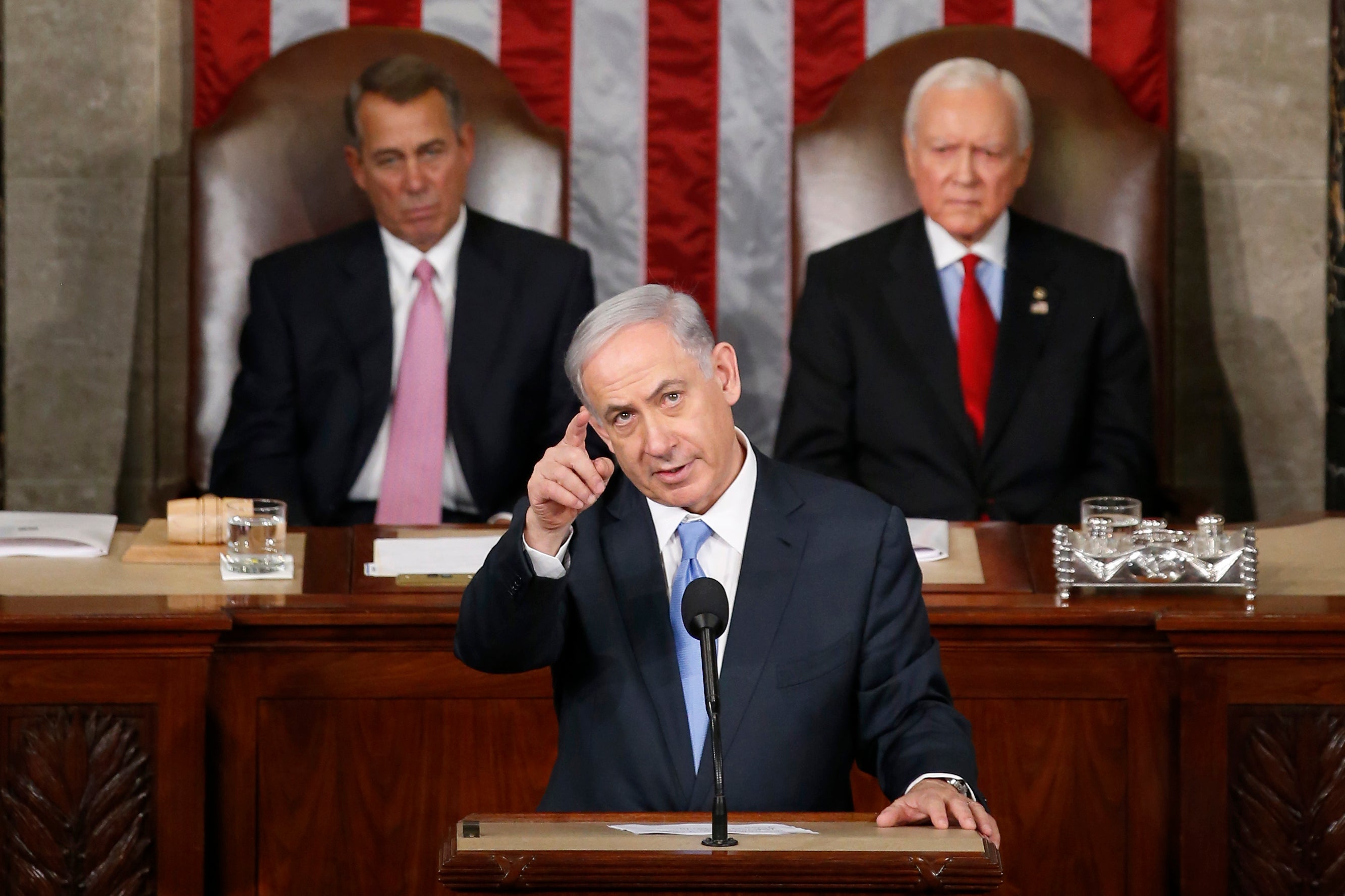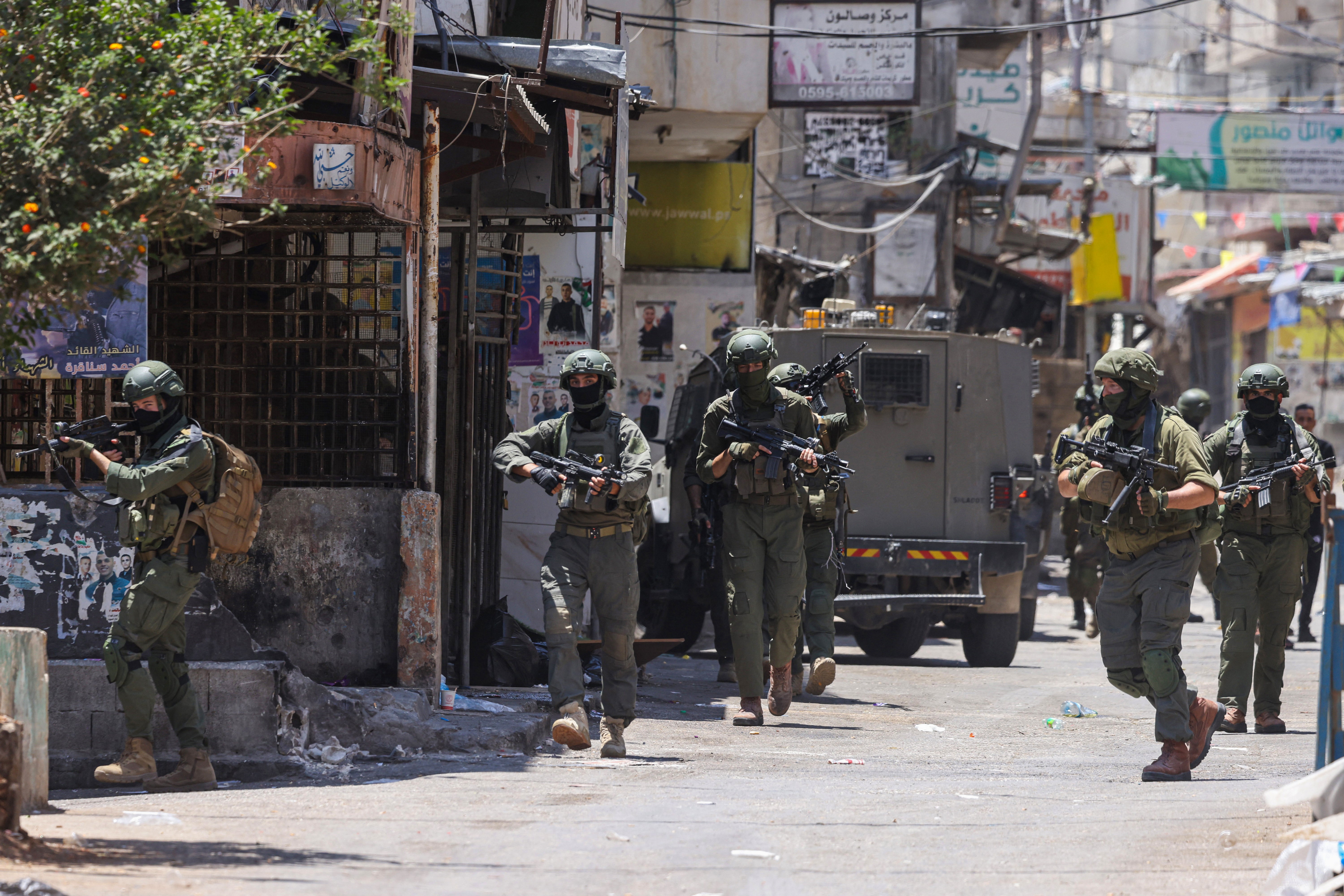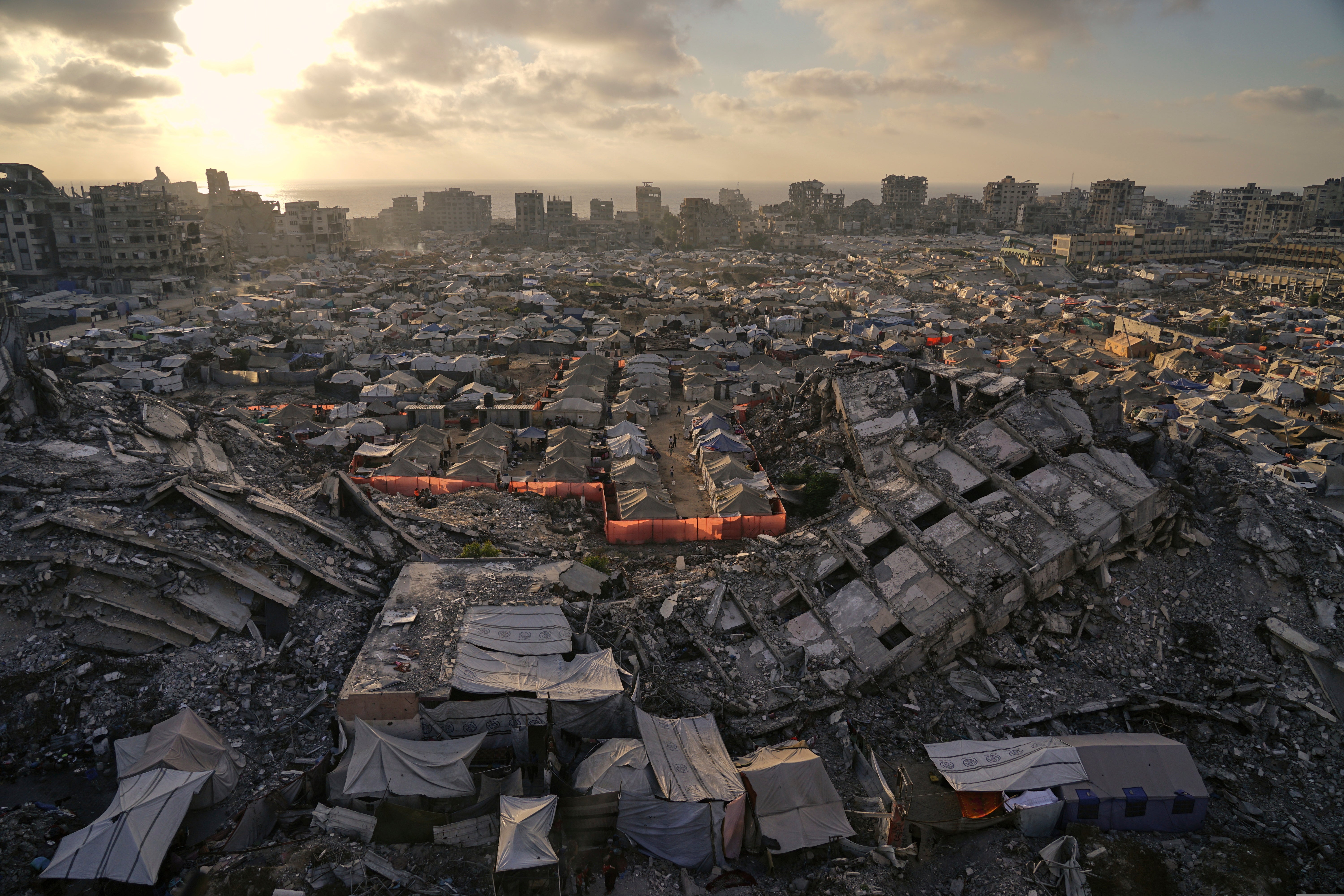In the wake of Donald Trump’s extraordinary outburst of profanity outside the White House, a fragile US-brokered truce between Israel and Iran appears to be tentatively holding.
In recent days, this has been accompanied by a flurry of messaging from Israel that this cessation of hostilities is just the start.
Benjamin Netanyahu, in a brief but emphatic video on Thursday, insisted that after Israel achieved “a great victory” over its staunchest foe, a new opportunity had opened up for a “dramatic expansion of peace agreements”.
“There is a window of opportunity here that must not be wasted. We must not waste even a single day,” he said with emphasis.
For the two million Palestinians in Gaza facing starvation and slaughter, the hope is that this new climate of negotiations might herald the end of 20 months of Israel’s unprecedented bombardment, which has reduced the 25-mile-long strip to ashen rubble and claimed over 56,000 lives, according to local officials.
Senior Palestinian health workers told The Independent that without a ceasefire and the immediate delivery of desperately needed aid, they were “scared we are teetering on the very edge”.
“We are so tired – we can’t keep going,” said Yosef Abureesh, Gaza’s deputy health minister, outlining how half of the essential drugs list is missing and that none of the 38 hospitals in Gaza is fully functioning.
“Don’t rely on our resilience. We are no longer able to continue as health staff,” he added.
But what would this peace actually look like – and at what cost?
Last weekend, Netanyahu proclaimed a “tectonic shift” in the Middle East with Iran weakened, claiming it could herald many more regional states signing the Abraham accords and thereby recognising and normalising relations with Israel.
“We have broken the axis,” he told reporters triumphantly. “This is a huge change, and Israel’s status is rising – not just in the Middle East but across the world.”
Netanyahu’s comments on Thursday, though still animated, were more vague. The entire statement lasted just 28 seconds, during which he referred to a “window of opportunity” alongside “the defeat of Hamas” and “the release of the hostages”.
There are thought to be around 50 Israelis seized by Hamas during its bloody 7 October 2023 assault in southern Israel who remain in Gaza. Of those, only 20 are believed to still be alive. Netanyahu has faced mounting pressure from the families of the captives and the deceased to sign any truce that could bring the hostages home.
According to leaks in Israeli media, the US is also piling on pressure for a rapid peace deal in Gaza that could include broader regional implications.

The left-leaning Israeli daily Haaretz reported on Friday that senior Trump administration officials have urged Israel to send its negotiating team to Cairo next week to advance talks with Hamas.
Israel Hayom reported a four-way call involving Trump, US secretary of state Marco Rubio, Netanyahu, and Israel’s minister of strategic affairs Ron Dermer, in which they discussed the possibility of a rapid end to the war in Gaza – possibly within just two weeks.
The newspaper said the deal discussed could lead to an expansion of the Abraham accords to include Saudi Arabia and a post-Assad Syria. The accords, announced in 2020, saw diplomatic normalisation and trade deals signed between Israel and Arab states, including the United Arab Emirates and Bahrain.
The deal would allegedly be conditional on Hamas being replaced by an “Arab coalition” to administer Gaza, with several nations accepting large numbers of Gaza residents “seeking emigration” – a potentially alarming indication of transfer of the population.
In exchange, the leaks said, the US would recognise “limited Israeli sovereignty” in the occupied West Bank – likely meaning Trump is preparing to acknowledge Israel’s de facto annexation of parts of territory that Palestinians hope to include in a future state. This includes settlements considered illegal under international law and a major obstacle to peace.
In return, Israel would have to declare a willingness for a future resolution to the conflict based on a “two-state concept”, a notable watering down of the long-held and widely accepted belief that the creation of two sovereign states – Israel and Palestine – is the best solution to the conflict.

But even these conditions will likely face pushback from Netanyahu’s cabinet. Extreme-right ministers Itamar Ben-Gvir and Bezalel Smotrich have repeatedly called for the permanent conquest of Gaza and the re-establishment of Jewish settlements in Gaza that were dismantled in 2005.
Without their support, Netanyahu risks the collapse of his razor-thin governing coalition.
In a statement on Thursday, Smotrich declared: “Mr Prime Minister, let it be clear: you do not have a mandate – not even a hint of one, or a lip-service one. If there are countries that want peace in exchange for peace – welcome. If they want a Palestinian state – they can forget it. It won’t happen.”
Secondly, these are conditions that the Palestinian leadership is unlikely to accept, especially if the proposal excludes the full withdrawal of Israeli forces from Gaza and involves annexing parts of the occupied West Bank.
The Independent reached out to Hamas for comment on the reported leaks but has yet to receive a reply.
Hamas badly needs a ceasefire. It is struggling to survive in Gaza, short of commanders (many of whom have been eliminated by Israel), deprived of much of its tunnel network, and now unsure of continued support from Iran, whose own military leadership has been battered.

Yet, according to Gershon Baskin – a veteran Israeli hostage negotiator and peace activist – even under extreme conditions, Hamas is still unlikely to accept the proposed terms.
“Hamas is ready to release all of the hostages and give up control over Gaza, but not as a surrender to Israel or to Trump – it must be part of a wider plan, which includes the reconstruction of Gaza,” he told The Independent.
“The idea of expanding the pie and adding extra components is good, but it must include ending the war and Israel withdrawing from Gaza.
“If it includes annexation of parts of the West Bank, Hamas – and all Palestinians – will never agree.”
In the interim, time is running out for civilians in Gaza.
On Friday, the World Health Organisation warned that its first delivery of medical supplies to Gaza since March – when Israel imposed a full blockade on the strip – was merely a “drop in the ocean” compared to what is needed.

“Open the routes and make sure that we can get our supplies in,” said WHO’s Dr Rik Peeperkorn from Jerusalem, adding that Israel had denied entry to nearly 45 per cent of the organisation’s aid teams.
From inside Gaza, Dr Abureesh warned that the population simply cannot continue in these conditions.
“Even someone working in Hollywood preparing a horror movie would not be able to invent the scenario that people in Gaza are living through right now,” he told The Independent.
“All the ways to kill people are being used together.”
Trump cuts off all trade talks with Canada citing ‘blatant attack’
Poll shows clear 2028 GOP frontrunner to succeed Trump
Starmer urged to act after Trump threatens Commonwealth ally Canada
Holly Valance splits from billionaire Nick Candy – reports
Trump denies US plan to offer Iran $30bn civilian nuclear deal
Trump claims he spared Khamenei’s life but would consider bombing Iran again







